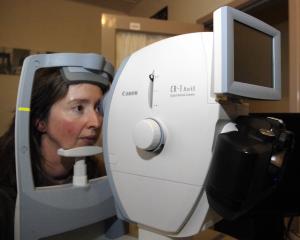A Mosgiel rest-home owner says he has no objections to more frequent spot checks of aged-care facilities, provided they are done for the right reasons.
The parliamentary health select committee has recommended spot checks of aged-care facilities without notice and suggested changes to funding after considering a report yesterday.
Authorities already had the power to make spot checks - known in the industry as issues audits - but rarely carried them out, Peter White, founder of the Chatsford and Birch-leigh village at Mosgiel, said last night.
Audits were usually done if there had been a complaint about the standard of care.
He said rest-home operators would not oppose more spot checks, unless they were "misused".
"The fear in the past has been that audits are perceived not just to be an audit but a flexing of force by the authorities."
Rest-homes were also routinely audited by the Ministry of Health and health boards across all parts of their operations, from bookwork and patient care plans to maintenance and the standard of food, Mr White said.
The health select committee was considering a report written in response to a 33,911-signature petition made on behalf of the New Zealand Nurses Organisation (NZNO) and the Service and Food Workers Union last August which called for legislation to set minimum staffing levels in residential aged-care facilities.
The committee did not support moving towards a more regulatory staffing model.
However it supported spot checks because they were existing policy.
It said additional funding would help providers better support and retain staff, and said consideration should be given to setting up a register of caregivers who committed elder abuse.
The Government responded saying it aimed to provide more certainty around funding of the sector, first by looking at how health boards contracted pro-viders, and allocated funding.
The Government would treat the quality of nursing and supervision as a priority.
Mr White said if the Government wanted to pay elderly care staff more, it needed to increase funding for the sector.
"The state sets both the funding levels and the service levels for the sector. Providers are are meat in the sandwich."











